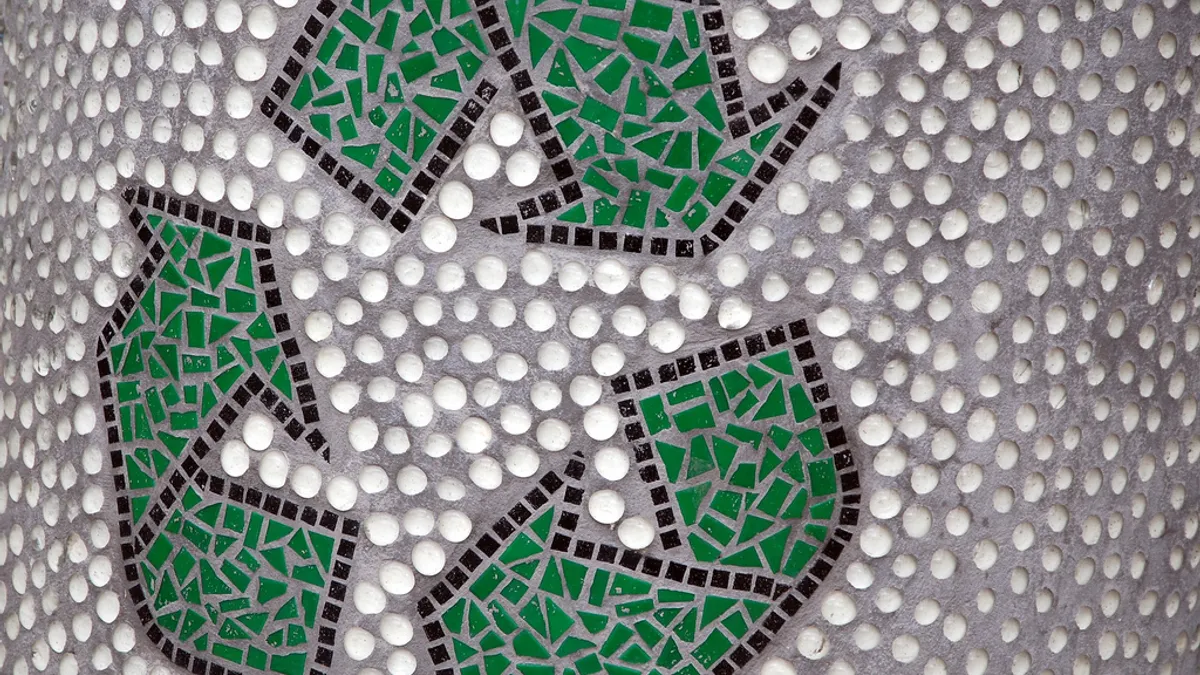Dive Brief:
- The Tennessee Department of Environmental Conservation (TDEC) has announced the release of $2.07 million in grants for recycling equipment, recycling rebates and used oil disposal. The recycling funds come from a state-mandated charge on every ton of solid waste brought to landfills and on new tires sold in the states.
- About $647,700 of the funds are dedicated to equipment, with some form of local match based on a sliding scale. No county received more than $50,000. Common requests for the grants included new trucks, roll-off containers, scales and glass pulverizers.
- The $500,000 in rebates were given to programs within the five most populated counties to fund equipment and public education. Memphis was the largest recipient, with more than $141,000 for a range of programs, followed by Nashville, with more than $122,700 to help with recycling collection costs.
Dive Insight:
This systems of grants and rebates was originally established by the Solid Waste Management Act of 1991, which also required planning regions to reduce the amount of waste they sent to landfills 25% per capita based on 1995 data. TDEC's 2015-2025 plan updated those goals with a new focus on end markets, sustainable materials management, and organics diversion, among other areas. At the time, TDEC estimated that if population growth and landfill trends continued as expected the state could run out of disposal capacity by 2036.
Glass recycling has been one of the more notable challenges in the state recently. Waste Connections of Tennessee has stopped collecting glass in the state's eastern region and Knoxville stopped accepting it curbside this year. Nashville also doesn't offer curbside glass recycling, though has been exploring drop-off options based on public interest.
Nashville is also in the middle of a new food waste reduction initiative that could serve as a potential model for others in the state or around the country. In partnership with the Natural Resources Defense Council (NRDC), the city is working to address wasted food across multiple sectors and siting a new anaerobic digester.















